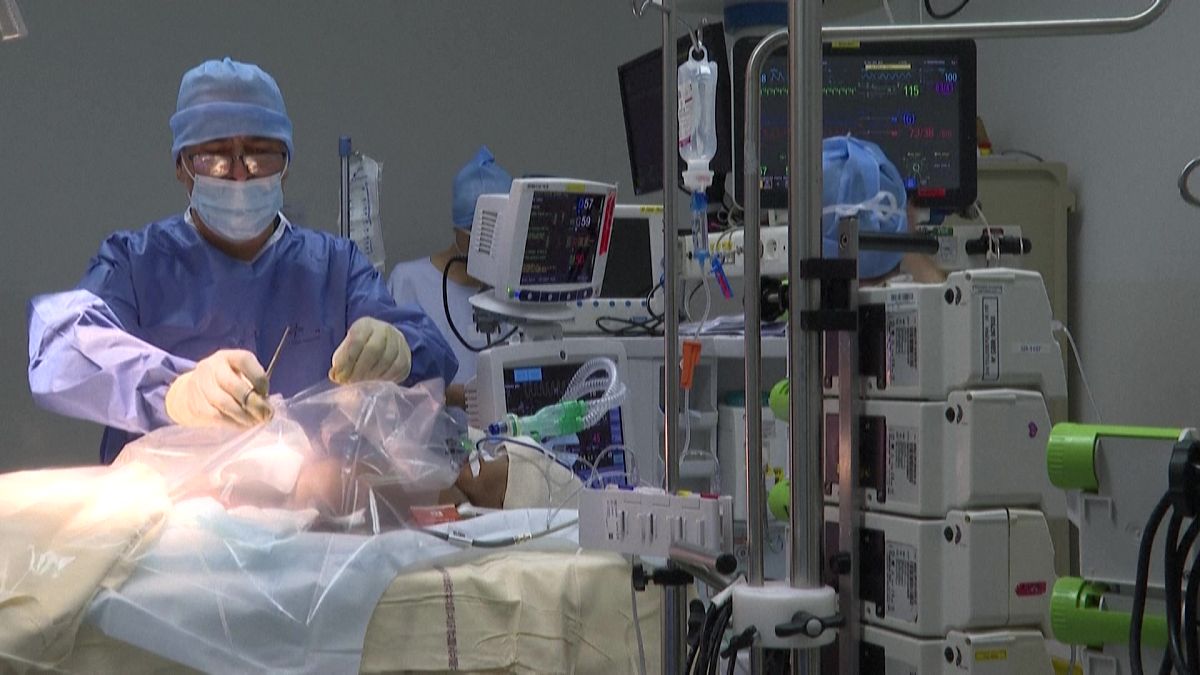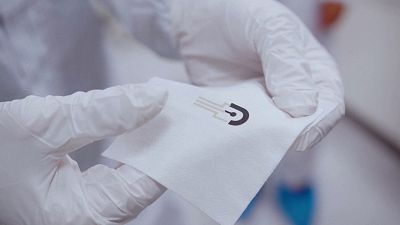The probe helps surgeons examine the functioning of the heart and the quality of surgery with great precision - even if the patients weigh only 5 kg.
A new miniature heart probe is helping surgeons in a French hospital better treat children with serious heart defects, thanks to highly precise 3D ultrasound scans.
The probe being trialled at the Toulouse University Hospital allows doctors to see all segments of the heart in real-time and determine whether the surgery will be successful - or whether it will need a follow-up - before they’re even done operating on their young patients.
"We have been waiting for this for more than 10 years... It is obviously a very useful tool for repairing their hearts," said Philippe Acar, a professor of paediatric and congenital cardiology at Toulouse University Hospital.
Each year, around the world, 1.3 million babies are born with a life-threatening heart defect, according to Heart to Heart Global Cardiac Care. That is one child every 30 seconds.
Although these defects are often highly treatable, it can be challenging for doctors to operate on these young patients as it can be hard to precisely assess their heart defect using only two-dimensional ultrasound.
A 3D probe allows doctors to examine the heart closely but until now, it could only be used to examine older and bigger patients as “it is very difficult to miniaturise the crystals that send the ultrasound,” explains Carolina Bonilla, biomedical engineer at General Electric (GE).
The US company has now designed a miniature 3D probe that can be used in young children and babies over 5 kg.
The new probe has already helped treat more than 15 children in this French hospital alone.
Tracking the quality of the surgery in real-time
The 3D echo allows doctors in particular to know whether any "residual lesions" must be repaired immediately.
Doctor Khaled Hadeed, who carried out open-heart surgery on a 10-month-old girl on November 24, said he was satisfied to "clearly see the quality of the repair".
According to GE, this is thanks to real-time 3D shots which allow surgeons to see all the segments of the heart in the same cardiac cycle.
The paediatric cardiology department of the Toulouse University Hospital is among the first in the world to use the device.
However, for now, it cannot afford the tens of thousands of euros needed to acquire this probe.
Currently, the medical device is on loan from GE and is being shared with other French and European hospitals.
For more on this story, watch the video in the media player above.



